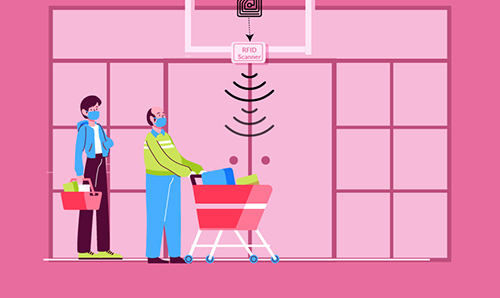As the world faces mounting challenges from waste generation and environmental degradation, innovative solutions are crucial to shaping a sustainable future. One such solution gaining traction is the implementation of Radio-Frequency Identification (RFID) technology in Pay-As-You-Throw (PAYT) trash programs. In this article, we delve into real-world success stories showcasing how RFID-enabled PAYT programs are revolutionizing waste management and fostering environmental stewardship.
In City of Saskatoon, the introduction of RFID technology to their PAYT program led to remarkable results. By attaching RFID tags to garbage bins, the city was able to accurately measure the waste generated by each household. This precise measurement eliminated the guesswork associated with traditional billing methods.
The real impact, however, was in waste reduction. With real-time data on bin fill levels, City A optimized collection routes, ensuring that trucks only visited bins that required emptying. This strategic approach significantly reduced fuel consumption, vehicle wear and tear, and labor costs. As a result, City A witnessed a substantial reduction in landfill waste, improving their environmental footprint and contributing to a greener community.
Cities and towns across Connecticut took a different approach to RFID-enabled PAYT programs by prioritizing citizen engagement. They introduced an interactive app that allowed residents to monitor their waste disposal habits in real time. Through the app, residents could track their waste generation, set goals for waste reduction, and even receive personalized tips for recycling and responsible waste disposal.
This engagement strategy empowered residents to take ownership of their waste management practices. As residents saw the tangible impact of their efforts, recycling rates increased, and waste generation decreased. Beyond reducing landfill waste, City B fostered a sense of environmental responsibility within its community.
Ottawa exemplifies how RFID technology revolutionizes the fairness and accuracy of PAYT billing. Traditional flat-rate billing systems often failed to account for the disparities in waste generation among households. With RFID-enabled bins, City C ensured that residents paid only for the waste they produced.
The introduction of RFID technology allowed City C to implement a tiered billing system based on actual waste generation. This approach not only promoted waste reduction but also incentivized recycling. Residents responded positively to the transparency of the system, recognizing that their efforts directly impacted their bills. This new billing structure effectively aligned incentives with environmental goals, making sustainable practices financially rewarding.

The success stories of City mentioned above underscore the transformative power of RFID-enabled PAYT programs. These programs are more than just billing systems – they represent a paradigm shift in waste management. By embracing RFID technology, municipalities are maximizing efficiency, reducing landfill waste, empowering residents, and aligning economic incentives with environmental stewardship.
As more communities recognize the benefits of RFID-enabled PAYT programs, we can expect to see a broader transformation in waste management practices. This shift not only contributes to cleaner, greener cities but also paves the way for a more sustainable future for generations to come. The successes achieved by these cities serve as inspiration for others to adopt similar strategies, driving us closer to a world where waste is minimized, resources are conserved, and the environment thrives.